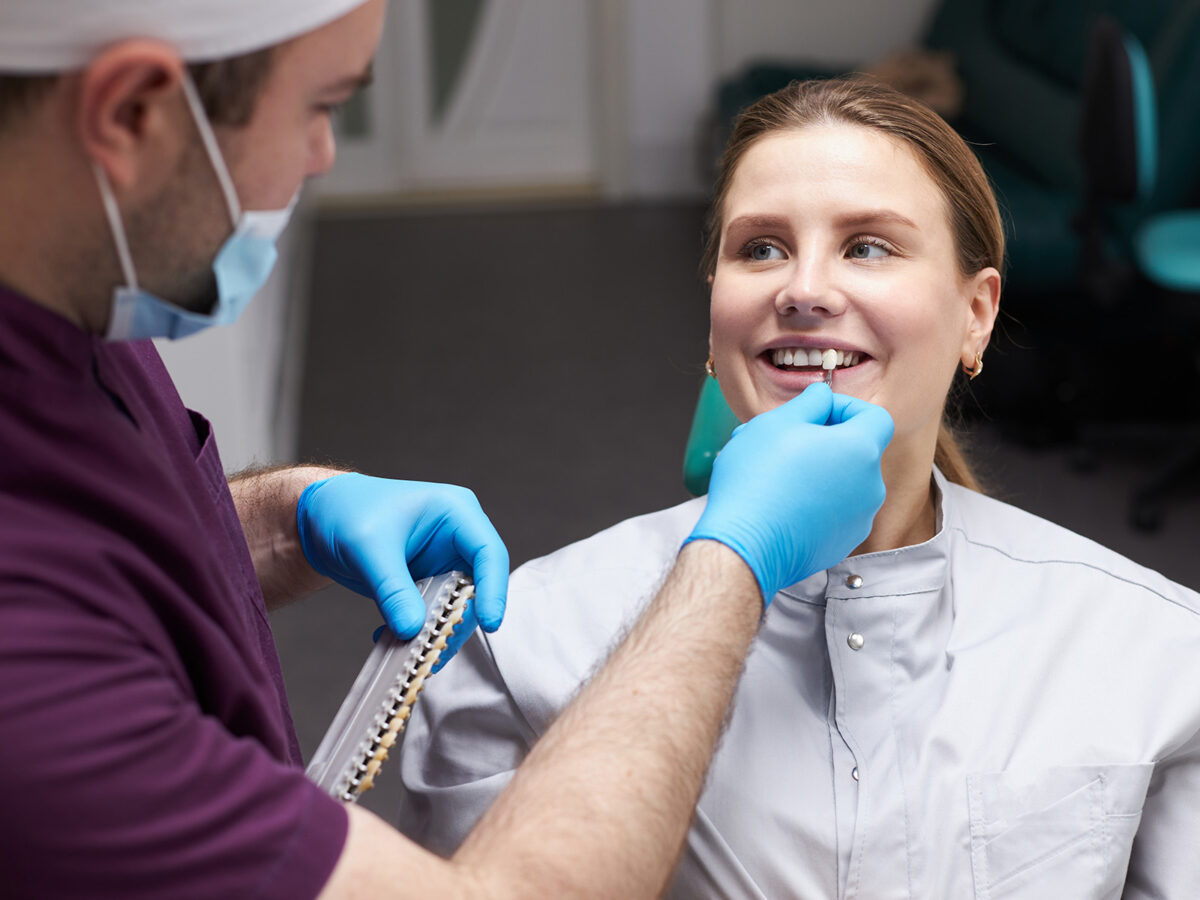Blog
Dental hygiene tips for healthy teeth & gums

Can You Still Get Cavities With Porcelain Veneers?
Porcelain veneers are a popular cosmetic dental solution that can enhance the appearance of your smile by improving the shape, color, and alignment of your teeth. These thin, custom-made shells are bonded to the front surface of your teeth, providing a natural-looking and durable result. While porcelain veneers are highly resistant to stains and discoloration, it’s essential to understand that they are not impervious to oral health issues, including cavities. Below we will explore whether you can still get cavities with porcelain veneers and discuss the importance of maintaining good oral hygiene to preserve your dental health.
Understanding Porcelain Veneers
Porcelain veneers are designed to enhance the aesthetics of your smile by covering imperfections such as chips, stains, gaps, or misaligned teeth. As part of the veneer placement process, your teeth are prepared by removing a thin enamel layer. They are then bonded to the prepared teeth using a dental adhesive, resulting in a natural and beautiful smile transformation.
Porcelain Veneers and Cavities
Although porcelain veneers are not prone to cavities or decay, the underlying tooth structure still presents a risk of decay. The junction between the porcelain veneer and the natural tooth can create a small crevice or gap where bacteria and plaque can accumulate, potentially leading to tooth decay if proper oral hygiene practices are not maintained. It is crucial to understand that even with porcelain veneers, oral care, and regular dental check-ups remain essential for preserving your overall dental health.
Here are some reasons that could lead to cavities while wearing veneers:
- Improper oral hygiene practices
- Inadequate brushing and flossing around the veneers
- Failure to remove plaque and bacteria buildup
- Consuming sugary or acidic foods and beverages
- Neglecting regular dental check-ups
- Weakened tooth structure underneath the veneers
- Poorly fitted veneers allow bacteria to penetrate
- Dental trauma or injury affecting the veneers’ integrity
Maintaining Good Oral Hygiene
To prevent cavities and maintain optimal oral health, practicing good oral hygiene habits before and after receiving porcelain veneers is vital. Following are a few key steps:
- Brushing: Use a soft-bristled toothbrush at least twice daily and fluoride toothpaste. Pay close attention to the gum line, the area around the veneers, and all tooth surfaces to ensure thorough cleaning.
- Flossing: Clean between your teeth and around the veneers by flossing daily. Use dental floss or interdental brushes to remove plaque and food particles that can lead to cavities and gum disease.
- Mouthwash: Rinse with an antimicrobial mouthwash recommended by your dentist. It can help reduce bacteria in your mouth and maintain a healthy oral environment.
- Regular Dental Check-ups: Ensure you visit your dentist regularly for professional cleanings and examinations. It allows your dentist to assess your veneers’ condition, monitor your teeth’ health, and identify potential issues early on.
- Avoid Damaging Habits: Refrain from biting or chewing on objects with a hard surface, such as ice or pens, as this can damage the veneers or the underlying teeth.
- Balanced Diet: Maintain a balanced diet that limits sugary and acidic foods and beverages. These can contribute to tooth decay and compromise the integrity of your natural teeth surrounding the veneers.
Conclusion
Porcelain veneers offer a remarkable solution to enhance your smile, but it’s important to remember that they do not provide absolute protection against cavities. While the veneers themselves resist decay, the underlying teeth are still vulnerable. By maintaining good oral hygiene practices, including regular brushing, flossing, and dental check-ups, you can minimize the risk of cavities and ensure the longevity of your porcelain veneers. Always consult your dentist for personalized advice and guidance on maintaining your oral health and preserving the beauty of your smile.
